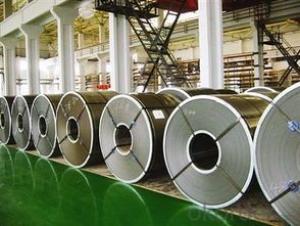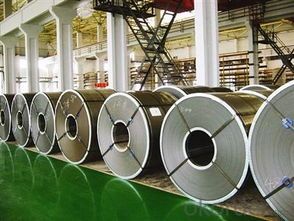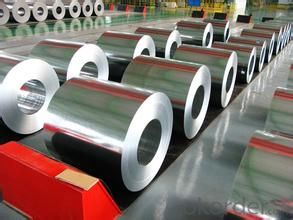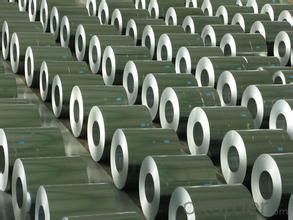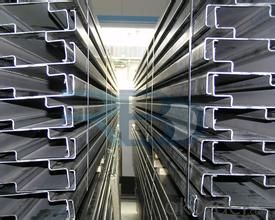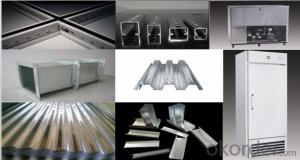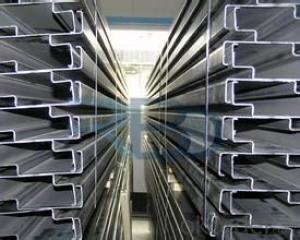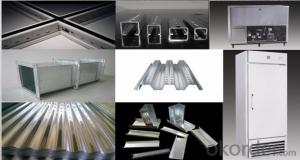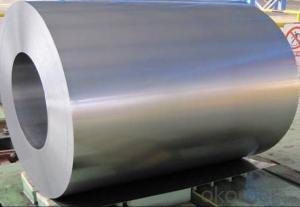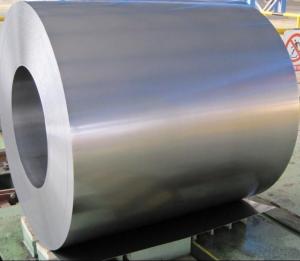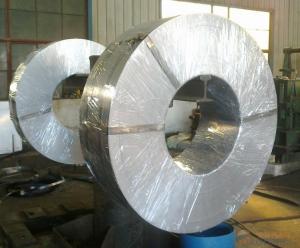Hot-dip Zinc Coating Steel Building Roof Walls With Best Quality
- Loading Port:
- China main port
- Payment Terms:
- TT OR LC
- Min Order Qty:
- 50 m.t.
- Supply Capability:
- 10000 m.t./month
OKorder Service Pledge
OKorder Financial Service
You Might Also Like
Hot-dip Zinc Coating Steel Building Roof Walls With Best Quality
1.Structure of Hot-Dip Galvanized Steel Sheet Description:
Hot-dip galvanized steel coils are available with a pure zinc coating through the hot-dip galvanizing process. It offers the economy, strength and formability of steel combined with the corrosion resistance of zinc. The hot-dip process is the process by which steel gets coated in layers of zinc to protect against rust. It is especially useful for countless outdoor and industrial applications. Production of cold formed corrugated sheets and profiles for roofing, cladding, decking, tiles, sandwich walls, rainwater protective systems, air conditioning duct as well as electrical appliances and engineering.
2.Main Features of the Hot-Dip Galvanized Steel Sheet:
• Excellent process capability
• Smooth and flat surface
• Workability, durability
• Excellent anticorrosive property
• High strength
• Good formability
• Good visual effect
3.Hot-Dip Galvanized Steel Sheet Images
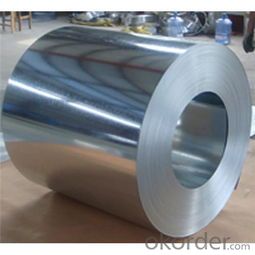
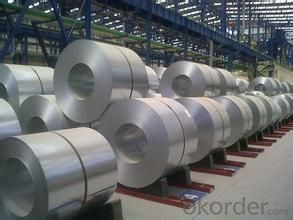
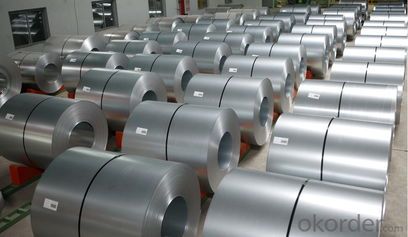
4.Hot-Dip Galvanized Steel Sheet Specification
Standard: ASTM, JIS,EN
Grade: CS, DX51D+Z,SGCC, SS 230~550,S220GD+Z~S550GD+Z, SGC340~SGC570
Thickness: 0.18mm~5mm
Width: max 2000mm
Coil weight:3-12 MT
Coil ID:508/610mm
Surface structure: zero spangle, regular spangle or minimum spangle
Surface treatment: Chromate treatment, Oiled/dry, skinpassed/non-skinpassed
Packing: Standard seaworthy export package
Technology test results:
Processability | Yield strength | Tensile strength | Elongation % | 180°cold-bending |
Common PV | - | 270-500 | - | d=0,intact,no zinc removal |
Mechanical interlocking JY | - | 270-500 | - | d=0,intact,no zinc removal |
Structure JG | >=240 | >=370 | >=18 | d=0,intact,no zinc removal |
Deep drawn SC | - | 270-380 | >=30 | d=0,intact,no zinc removal |
EDDQ SC | - | 270-380 | >=30 | d=0,intact,no zinc removal |
5.FAQ of Hot-Dip Galvanized Steel Sheet
We have organized several common questions for our clients,may help you sincerely:
1.How to guarantee the quality of the products?
We have established the international advanced quality management system,every link from raw material to final product we have strict quality test;We resolutely put an end to unqualified products flowing into the market. At the same time, we will provide necessary follow-up service assurance.
2. How long can we receive the product after purchase?
Usually within thirty working days after receiving buyer’s advance payment or LC. We will arrange the factory manufacturing as soon as possible. The cargo readiness usually takes 15-30 days, but the shipment will depend on the vessel situation.
- Q: How are steel coils used in the production of pipes?
- Steel coils are used in the production of pipes by being uncoiled and passed through a series of forming rolls to shape them into a cylindrical tube. These coils provide the raw material needed for pipe manufacturing and ensure a consistent and high-quality product.
- Q: Brass as a rule I believe is betterhowever I do not plan to get into reloading any time soon I just want some cheap practice ammo so will steel case ammo hurt my gun (semi auto) any more than brass ammo and if so how much more?
- If it's new you want to use quality brass ammo the first few hundred rounds. After that it doesn't matter. But do not you cannot use brass and steel in the same session. The lacquer tends to stay behind in the chamber, will fuse with the brass and you get torn case heads. So when using steel always only use steel that session and scrub the chamber down.
- Q: What is the average cost of shipping steel coils?
- The average cost of shipping steel coils can vary depending on various factors such as the distance, weight, dimensions, mode of transportation, and any additional services required. To provide an accurate average cost, it would be necessary to consider these specific details.
- Q: What are the safety precautions for handling steel coils?
- Some safety precautions for handling steel coils include wearing appropriate personal protective equipment (PPE) such as gloves, safety glasses, and steel-toed boots to protect against potential injuries. It is important to ensure proper lifting techniques are used, utilizing equipment like forklifts or overhead cranes when necessary. Coils should be stored and stacked securely to prevent them from falling or rolling. Regular inspections of coils and equipment should be conducted to identify any potential hazards or damages. Additionally, workers should be trained on safe handling procedures and be aware of the weight and dimensions of the coils they are handling.
- Q: I am buying my boyfriend a steel guitar for our one year anniversary and I was curious what brand or company I should look into. I want something high quality yet traditional. Money is not really an issue but I don't exactly want to spend an arm and a leg either.Thank you in advance!
- Pedal steel or lap steel? Or do you perhaps mean a steel-STRING guitar, or a steel-bodied resonator guitar? Might help weed out irrelevant replies if you were to clarify.
- Q: What are the common defects found in steel coils?
- Some common defects found in steel coils include surface defects such as scratches, dents, and rust spots. Other defects may include coil breaks, which are cracks or breaks in the steel, as well as wavy edges, uneven thickness, and coil set, which is when the coil has a permanent curvature.
- Q: What are the different methods of stretch leveling steel coils?
- There are several methods of stretch leveling steel coils, each with its own advantages and applications. 1. Roller Leveling: This method involves passing the steel coil through a series of rollers that apply pressure to stretch and flatten the material. It is a widely used method for leveling steel coils and offers good control over the leveling process. Roller leveling is suitable for thin and medium gauge steel coils. 2. Tension Leveling: In this method, the steel coil is subjected to high tension forces applied by a set of bridle rolls. The tension helps to elongate and flatten the material, resulting in a level and stress-free coil. Tension leveling is particularly effective for thicker and harder steel coils. 3. Laser Leveling: Laser technology is employed in this method to measure and correct any imperfections in the steel coil. A laser scanner scans the surface of the coil and detects variations, which are then adjusted by a laser beam. Laser leveling offers high precision and is suitable for leveling sensitive and high-value steel coils. 4. Stretcher Leveling: This method involves stretching the steel coil beyond its yield point, which causes the material to permanently deform and eliminate any residual stresses. Stretcher leveling is commonly used for heavy gauge coils and can achieve significant flatness improvements. 5. Tensionless Leveling: As the name suggests, tensionless leveling is performed without applying tension to the steel coil. Instead, hydraulic or pneumatic pressure is used to stretch and flatten the material. This method is suitable for delicate or sensitive steel coils that may be prone to damage under high tension forces. Each method of stretch leveling steel coils has its own advantages, such as control, precision, or suitability for specific types of steel coils. The choice of method depends on factors like the thickness, hardness, and quality requirements of the steel coil, as well as the desired flatness and surface finish.
- Q: Can steel coils be coated with phosphorescent materials?
- Yes, steel coils can be coated with phosphorescent materials. Phosphorescent coatings can be applied to steel coils to create a glowing effect in low-light conditions.
- Q: So I'm looking for some decently priced black motorcycle boots that have steel toes (and any additional protection) and look good in jeans. Pretty simple. Any recommendations?
- you can go for UDYOGI make safety shoe.
- Q: Would the Ruger Sr22 pistol or the SW MP 15-22 be any good for the steel challenge?
- Diamond stressful situations the prevalent view of primitive societies as for this reason of a great number of exceptional causes quite. in case you study the e book he thinks that they are easily even smarter than us provided that that when he become once residing with the hot Guinea people he felt that he become once the single which become once boring because that he could no longer do wise duties similar to following a course and different stuff that they do of their daily time. also he thinks they're smarter because that we watch such plenty television, mutually they're actively residing existence. maximum of this counsel you'll come across on information superhighway website 20 -21. i variety of vaguely responded this question reason absolutely i have no theory what pejorative attitude..... i even regarded it up on-line for you and doesnt quite make sense too much.....
Send your message to us
Hot-dip Zinc Coating Steel Building Roof Walls With Best Quality
- Loading Port:
- China main port
- Payment Terms:
- TT OR LC
- Min Order Qty:
- 50 m.t.
- Supply Capability:
- 10000 m.t./month
OKorder Service Pledge
OKorder Financial Service
Similar products
Hot products
Hot Searches
Related keywords
